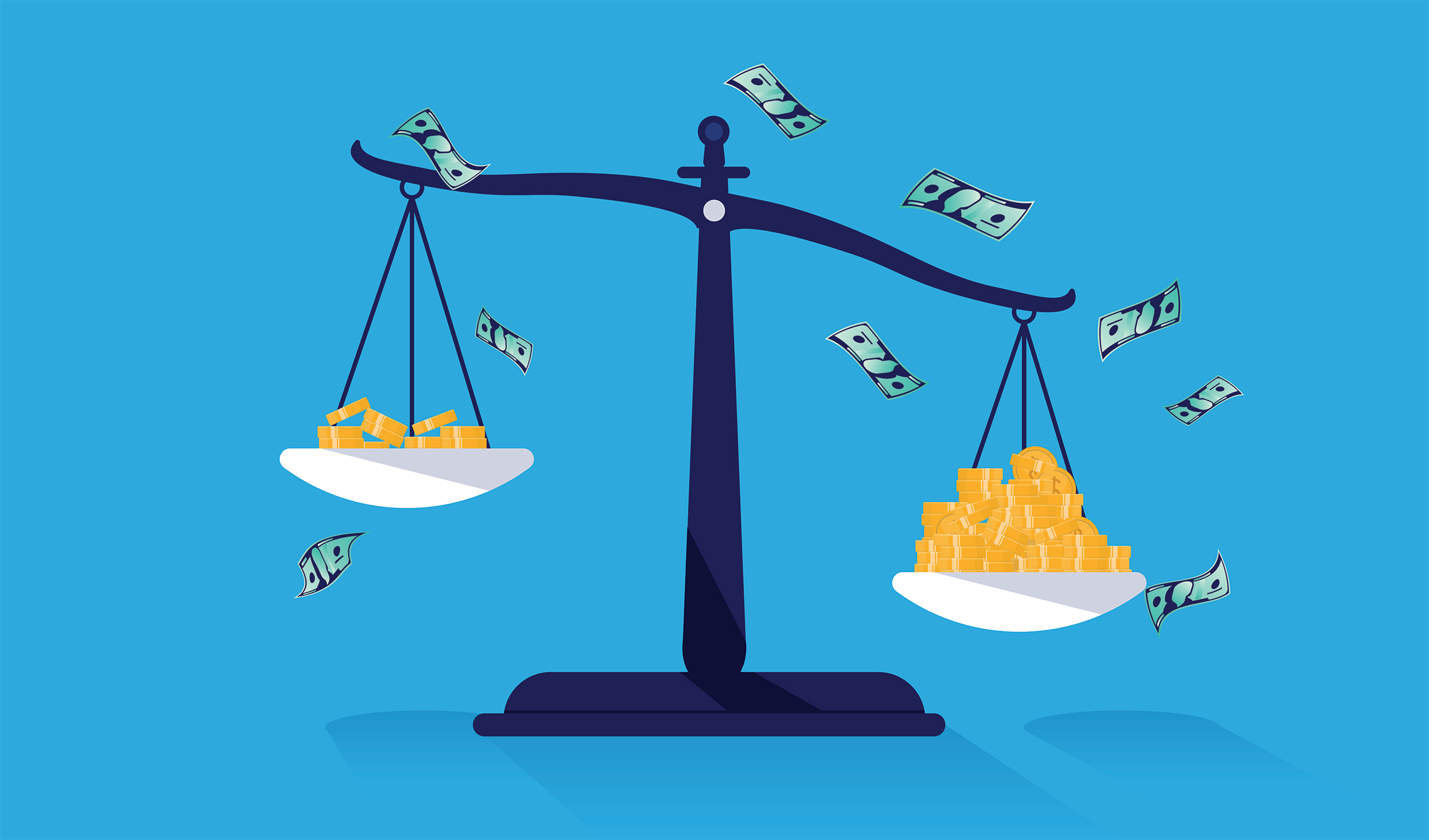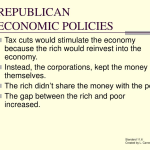Wealth inequality is a pervasive issue that has sparked intense debate across the globe. From the staggering wealth of billionaires to the struggles of everyday individuals, the disparity between the rich and the poor continues to grow, raising questions about social responsibility and economic justice. As discussions around the impact of wealth redistribution gain traction, many experts are re-evaluating the ethics of extreme wealth and its implications on society. This income inequality debate is crucial as it affects not only the economic landscape but also the moral fabric of our communities. The balance between philanthropy and wealth, and the responsibilities that accompany significant fortunes, are central concerns that demand our attention.
The stark contrast between affluent individuals and those living in poverty presents a pressing societal challenge often characterized by financial disparity. Various terms such as economic inequality, wealth disparity, and social stratification encapsulate this complex phenomenon, which is marked by the vast gulf between those with abundant resources and their less fortunate counterparts. As discussions broaden around corporate responsibility, the ethics of wealth distribution, and the role of philanthropy, understanding the implications of economic class divisions becomes increasingly vital. Moreover, this dialogue touches on the effectiveness of wealth redistribution strategies in addressing the plight of the impoverished, galvanizing a debate about the avenues for rectifying these imbalances. Ultimately, our society must confront these issues to foster a more equitable environment.
Understanding Wealth Inequality
Wealth inequality refers to the unequal distribution of assets among residents of a given country or region. This disparity often manifests starkly, where a tiny fraction of the population controls a significant share of wealth while the majority struggle to make ends meet. The growing chasm between the rich and poor raises critical ethical questions about social responsibility. In recent discussions, such as the one held at Harvard’s Edmond and Lily Safra Center for Ethics, experts debated whether the presence of billionaires contributes positively or negatively to society’s overall wealth distribution and social justice.
As panelist Tom Malleson highlighted during the debate, billionaires exacerbate environmental issues through their consumption patterns, leading to disproportionate carbon emissions. Conversely, supporters argue that these wealthy individuals can leverage their resources for philanthropy and societal benefit, investing in essential initiatives like combating poverty and advancing green technologies. This ongoing dialogue underscored the complex interplay between wealth, ethics, and social responsibility, calling for a need to rethink how wealth is accumulated and redistributed.
The Role of Philanthropy in Addressing Income Inequality
Philanthropy plays a pivotal role in the dialogue surrounding income inequality. Wealthy individuals, such as Bill Gates, have committed substantial resources to philanthropic causes aimed at improving global health, education, and poverty alleviation. Critics, however, question whether such acts of generosity can adequately compensate for the systemic issues that perpetuate income disparity. The debate raises essential points about who ultimately decides which causes receive funding and whether these philanthropic efforts distract from the necessary structural changes required to combat systemic inequality.
As the discussion at Harvard revealed, while philanthropy can indeed lead to significant improvements in certain areas, it remains a band-aid solution to a more profound societal ill. Addressing income inequality requires comprehensive policies that focus on wealth redistribution. This means creating systems where the wealth generated by billionaires not only enhances their personal legacies but is deliberately directed toward creating sustainable societal improvements. Only through such measures can true equity be realized, and fortunes not merely be seen as tools for individual good but as resources for collective empowerment.
Debating Billionaires: Societal Benefits and Drawbacks
The presence of billionaires in society stirs a perennial debate about their potential benefits and drawbacks. On one hand, advocates argue that billionaires create jobs, drive innovation, and contribute to economic growth. They assert that the super-rich are more likely to invest in groundbreaking initiatives and technologies than government entities. Supporting this perspective, panelist Jessica Flanigan claimed that billionaires can be more reliable than public officials in delivering aid to impoverished communities, given their ability to enact change swiftly through private funding.
On the other hand, critics like Malleson contend that the wealth generated by billionaires often comes at a significant societal cost. Their immense wealth can lead to corruption, unequal influence over politics, and environmental destruction, undermining public trust and democratic processes. The juxtaposition of these viewpoints reveals an essential tension within the income inequality debate, prompting us to consider whether a system accommodating billionaires can coexist with equitable opportunities for all members of society.
Wealth Redistribution: An Ethical Imperative
The act of wealth redistribution is not just an economic necessity; it is increasingly being recognized as an ethical imperative. During the recent Ethics Center debate, panelists examined the principles underlying wealth distribution and argued for systemic changes that ensure fair opportunities for the underprivileged. Wealth redistribution involves re-allocating resources in a way that provides basic needs for all citizens, a concept that is often linked to social justice and equity. By focusing on redistributing wealth towards public goods, societies can work towards reducing the existing gap between the rich and the poor.
Advocates for wealth redistribution argue that it could lead to an equitable society where everyone has access to basic amenities such as healthcare, education, and housing. This approach not only improves the living conditions of the most vulnerable populations but also enhances societal cohesion and economic stability. Skeptics, however, warn about the implementation challenges and the potential backlash from wealthy individuals who might resist government intervention. Ultimately, finding a balanced approach to wealth redistribution that respects the rights of individuals while promoting social responsibility is crucial for a harmonious society.
The Impact of Billionaires on Green Technology Investment
Billionaires have emerged as pivotal players in the financing of green technology initiatives aimed at combating climate change. Their financial prowess enables them to invest in cutting-edge renewable energy solutions and environmental conservation programs, potentially generating significant positive impacts on sustainability. For example, panelist Jessica Flanigan noted how billionaires like Elon Musk have contributed to advancements in sustainable technologies that could reshape our energy landscape and help mitigate environmental degradation.
However, this reliance on billionaires for funding crucial climate initiatives also opens up a debate regarding accountability. When individual wealth dictates the direction of technological advancements, it raises questions about governance and ethics. Is it virtuous to depend on billionaires to drive solutions to environmental crises, or should responsibility lie more significantly with collective public action? The interplay of billionaire investments in green technology ultimately begs the question: can the wealth accumulated by individuals truly lead to collective action and sustainability, or do we risk perpetuating systems that prioritize profit over global welfare?
Market Economics vs. Social Welfare
The intersection of market economics and social welfare is a contentious topic debated by economists and policymakers alike. Supporters of the market economy argue that it fosters innovation, competition, and wealth generation, ultimately benefiting society as a whole. During the Harvard debate, the idea emerged that a thriving market economy, which generates wealth, is essential for financing public welfare initiatives that assist the poorest segments of the population. The argument posits that by creating high-income opportunities, the wealth at the top can create a trickle-down effect that lifts all boats.
Conversely, critics challenge this notion, contending that the current market systems often exacerbate inequality and neglect the needs of the disenfranchised. The debate highlighted the failures of relying solely on market efficiencies to provide equitable access to resources. A call for a more nuanced approach emerged, where market benefits are harnessed alongside robust social safety nets that ensure the basic needs of all citizens are met. Finding a balance between these competing priorities remains crucial for creating a society that values both economic vitality and social responsibility.
Reforming Business Practices for Fairer Outcomes
As the conversation surrounding income inequality and the influence of billionaires progresses, the focus on reforming business practices becomes increasingly important. The expectation today is not only for businesses to generate profits but also to engage in ethical labor practices that promote worker well-being and environmental sustainability. Initiatives such as those advocated by panelists like Shruti Rajagopalan spotlight the necessity of reforming corporate structures to include employee representation and fair wages. This reflects a growing awareness that businesses must adopt a broader social responsibility beyond mere profit-making.
Furthermore, creating systems that allow for equitable distribution of corporate profits can help address income disparities. Concepts like employee stock ownership plans and co-determination models, where workers participate in decision-making processes, promise to enhance economic equity. By advocating for such business reforms, society can work towards dismantling the problematic structures that perpetuate systemic inequality. The Ethics Center’s debates suggest that the integration of ethical practices into business models is not just beneficial but essential for fostering a healthier economy.
The Future of Wealth and Income Distribution
Look towards the future, the conversation about wealth and income distribution becomes increasingly critical as economic landscapes evolve. With the potential rise of trillionaires and the thus far unprecedented accumulation of wealth by the few, the question of how to effectively distribute wealth becomes paramount. Discussions at the Harvard debate revealed that a forward-thinking approach must take into account not only economic realities but also social justice frameworks. Panelist Nien-hê Hsieh proposed innovative models like property-owning democracy, where returns on capital are equitably shared, ensuring that wealth isn’t concentrated in a select few.
Moreover, as our society adapts to rapid technological changes, there is a pressing need for policies that prepare workers for a gig economy and automation, which could further exacerbate income inequality. Futures that prioritize equitable wealth distribution should focus on education, skill development, and social investments. Ensuring all societal members can participate in economic advancements is vital for fostering inclusive growth that benefits an entire community, rather than just a privileged few. Ultimately, the pursuit of a more equitable future necessitates collective action, informed policies, and a commitment to justice.
Frequently Asked Questions
What role do billionaires play in addressing wealth inequality?
Billionaires can play a significant role in addressing wealth inequality by investing in anti-poverty initiatives, green technology, and job creation. Their philanthropy has the potential to benefit the global poor and support sustainable development. However, some argue that their wealth accumulation contributes to social and economic disparities, highlighting the ongoing debate about the impact of wealth redistribution.
How does income inequality contribute to the rich vs poor dynamic?
Income inequality exacerbates the rich vs poor dynamic by creating a significant gap in resources, opportunities, and living standards. This disparity can lead to social unrest, decreased mobility, and increased hardships for those at the lower end of the economic spectrum. Wealth accumulation among the rich can potentially undermine public goods and services that are essential for the well-being of all.
What are the implications of wealth redistribution on social responsibility?
Wealth redistribution can enhance social responsibility by ensuring that resources are allocated towards public goods that benefit wider communities. This process can mitigate the effects of wealth inequality, promote ethical business practices, and hold billionaires accountable for their impact on society. However, the method and effectiveness of redistribution remain contentious topics within the income inequality debate.
How does philanthropy relate to wealth inequality?
Philanthropy has a complex relationship with wealth inequality. While billionaires often contribute to charitable causes that address social issues, such efforts can sometimes mask the broader implications of concentrated wealth. Critics argue that reliance on philanthropy may lead to unequal power dynamics and insufficient systemic change, emphasizing the need for structured wealth redistribution to truly alleviate wealth inequality.
Can addressing wealth inequality improve conditions for the poorest?
Yes, addressing wealth inequality has the potential to improve conditions for the poorest by ensuring more equitable access to resources and opportunities. By redistributing wealth through progressive taxation, social programs, and investments in public goods, society can create a more inclusive environment that supports education, healthcare, and economic mobility for low-income individuals.
What are the views on billionaires and their impact on society?
Views on billionaires and their impact on society vary widely. Some argue that their vast resources and ability to drive innovation can lead to significant social benefits, while others believe that the concentration of wealth undermines democratic processes and exacerbates inequality. This ongoing debate centers around the balance between individual success and collective responsibility.
Is there an ethical way to manage wealth in a society with billionaires?
Managing wealth ethically in a society with billionaires requires a framework that encourages fair contributions to societal well-being. This can include implementing regulations that promote equitable wealth distribution, encouraging corporate social responsibility, and establishing systems where the wealthy can support public needs without undermining democratic institutions.
How might immigration policies alleviate global wealth inequality?
Reforming immigration policies could alleviate global wealth inequality by allowing individuals from poorer countries greater access to economic opportunities in wealthier nations. By facilitating immigration, rich countries can help lift individuals out of poverty, promote cultural exchange, and address labor shortages while benefiting their own economies.
| Key Points |
|---|
| Extreme wealth and growing income inequality are significant social issues that provoke diverse opinions among experts. |
| Debates highlight the contrast between the benefits of billionaire philanthropy and the environmental harm they cause. |
| Some argue that redistributing wealth could support green technology and benefit society. |
| Arguments exist on whether the presence of billionaires ultimately helps or harms lower income individuals. |
| Suggestions for mitigating wealth inequality include democratic socialism, property-owning democracy, and market-based systems. |
| Improving the conditions for the poor involves complex solutions beyond taxation, such as immigration policies. |
Summary
Wealth inequality is a pressing concern as it not only impacts the economic landscape but also raises ethical questions regarding the responsibilities of the ultra-wealthy. The debate around billionaires illustrates the complex relationship between wealth accumulation and societal welfare. Many believe that rather than just existing in a society full of riches, we must establish systems that ensure equitable distribution and empower the underprivileged. Addressing wealth inequality requires innovative strategies that go beyond conventional taxation and consider avenues such as promoting fair labor practices and fostering inclusive economic growth.


